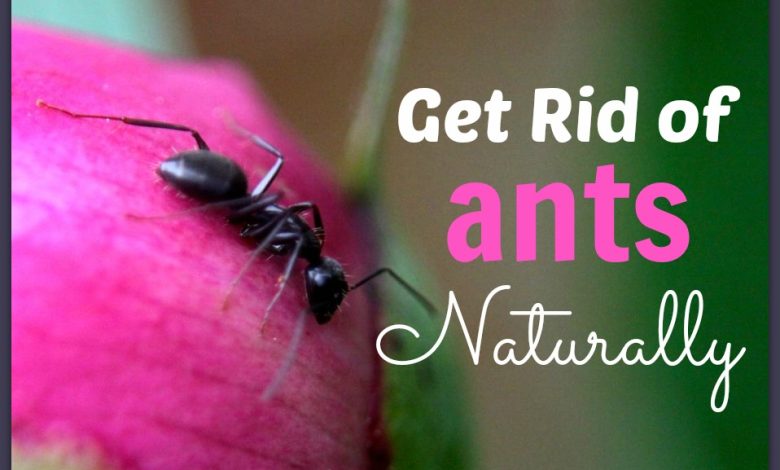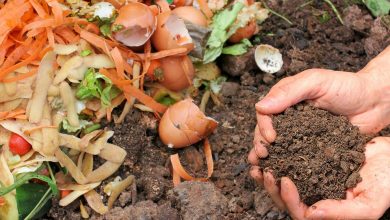How to eliminate black ants from the garden? the best tricks

Hi, I’m Rodrigo Barba, an agriculture student, I’m very interested in topics related to it and especially in techniques associated with agroecology, urban and peri-urban agriculture, which is so fashionable lately. This article deals with a typical problem for growers: the presence of black ants in orchards and how to deal with pest control. I hope that will be of interest.

ants in the orchard
Have you ever been bothered by this tiny and hard-working insect, yes! We are talking about black ants: their presence can have a negative influence on your garden, so it is important to learn a series of guidelines, lessons, advice, call it the 10 commandments when it comes to combating their attack in an ecological way that respects the environment.
The presence of black ants can be treated as one of the most frequent problems in the garden, if they settle in your garden you assume that they come to stay, reproduce and live at full speed, and first things first: they need food that they extract from our orchard, attracted by:
- At the beginning of spring, the lack of food due to the fact that their pantry is already empty after all the winter, they see in the young shoots an irresistible and very appetizing morsel.
- Milking and cooperation with other pests such as aphids, eliminating aphids means eliminating an ant target.
- In general, their activity throughout the summer is that of the effort to collect all plant material and with this breed a fungus that every anthill will feed on.
How to get rid of black ants in the garden
There are a series of techniques for its elimination, the ten commandments for its fight:
Crop rotation
Prevention of their entry with crop rotation and a variety of plants: make our garden comfortable for other types of insects such as the natural predators of ants, whether they are spiders or lizards. It is said that the toad is the gardener’s best friend, as it is a predator of many other unwanted guests such as the happy black ants. Another option, looking for predators, are the chickens, if there is enough space, a magnificent solution is to establish a group of chickens in a portable chicken coop if possible, in addition to other already known advantages, chickens have a hobby of digging anthills, they see ants as entertaining food to catch.
take care of the compost bin
Take care of the compost bin, do not place it very close to the orchard as it can be a source of ants, especially if its low humidity facilitates the transportation of the working ants. Frequently remove the compost bin, avoid making it a comfortable place for a new colony of black ants to settle.
Diesel, kerosene or gasoline
Placing containers with diesel, kerosene, burnt oil or gasoline near the paths of ants
glass wool rings
Make glass wool rings on stems and branches to keep out black ants.
Put aromatic plants
Cultivation of aromatics in the surroundings very effective: certain aromatic substances repel the activity of the ants, it would be something like natural barriers. A very effective species is lavender: perennial throughout the year, seasonal basil is also a powerful repellent.
Transparent plastic bottles
Protect the new transplants with transparent bottles cut at their base: do this as soon as the seedling is planted in spring, late winter. In addition, it facilitates a higher temperature, a better humidity condition and avoids problems when being watered.

Use of citrus
Orange peels or other citrus fruits drove away the presence of the insect. Like aromatic plants, certain aromatic chemical components repel ants, another way to apply them is through infusions (boiling water and using any aromatic plant by hand such as rue, rosemary, sage…) easily applied with a diffuser of Water.
Nettles
Another natural element is formic acid from nettles, use the same weapon, if you make nettle infusions you can use it in the same way that we have already seen: scattering it through your plants even in the anthill.
Ash
If the problem gets out of hand and you know for sure where the anthill is, try digging a hole with a shovel and a localized fire torch, but be very careful! Leave the hole and fill it with ash. If sufficient ash is available, 10 cm wide ash barriers can be made, isolating the cultivation beds such as terraces, flower beds or
Copper sulfate or Sulfuric acid
Copper sulfate solutions, diluted sulfuric acid, citrus extractions… there are also other more or less ecological treatments that can be used.
You can find remedies of all kinds, but many others of dubious reliability. The best way to fight is to anticipate their attack, and if we take these tips into account, the ants may not establish themselves or at least their attack will be less.
References
- Abrol, D., Shankar, U. (2016). Chapter 20 – Integrated Pest Management. Editor(s): Surinder Kumar Gupta. Breeding Oilseed Crops for Sustainable Production,
Academic Press. 523-549. - Milligan, M., Johnson, M., Garfinkel, M., Smith, C., Njoroge, P. (2016) Quantifying pest control services by birds and ants in Kenyan coffee farms, Biological Conservation,194, 58-65.
I hope all of this has been of interest, if not then at least helpful, try it out and see what the reaction is to the activity of the black ants in your garden, good luck and hard on them!


![Photo of How to Grow and Care for Your Phalaenopsis Orchid: [Complete Guide]](https://www.complete-gardening.com/wp-content/uploads/2022/08/how-to-grow-and-care-for-your-phalaenopsis-orchid-complete-guide-313x220.jpg)

![Photo of Carambolo: [Cultivation, Irrigation, Care, Pests and Diseases]](https://www.complete-gardening.com/wp-content/uploads/2021/06/Carambolo-390x220.jpg)